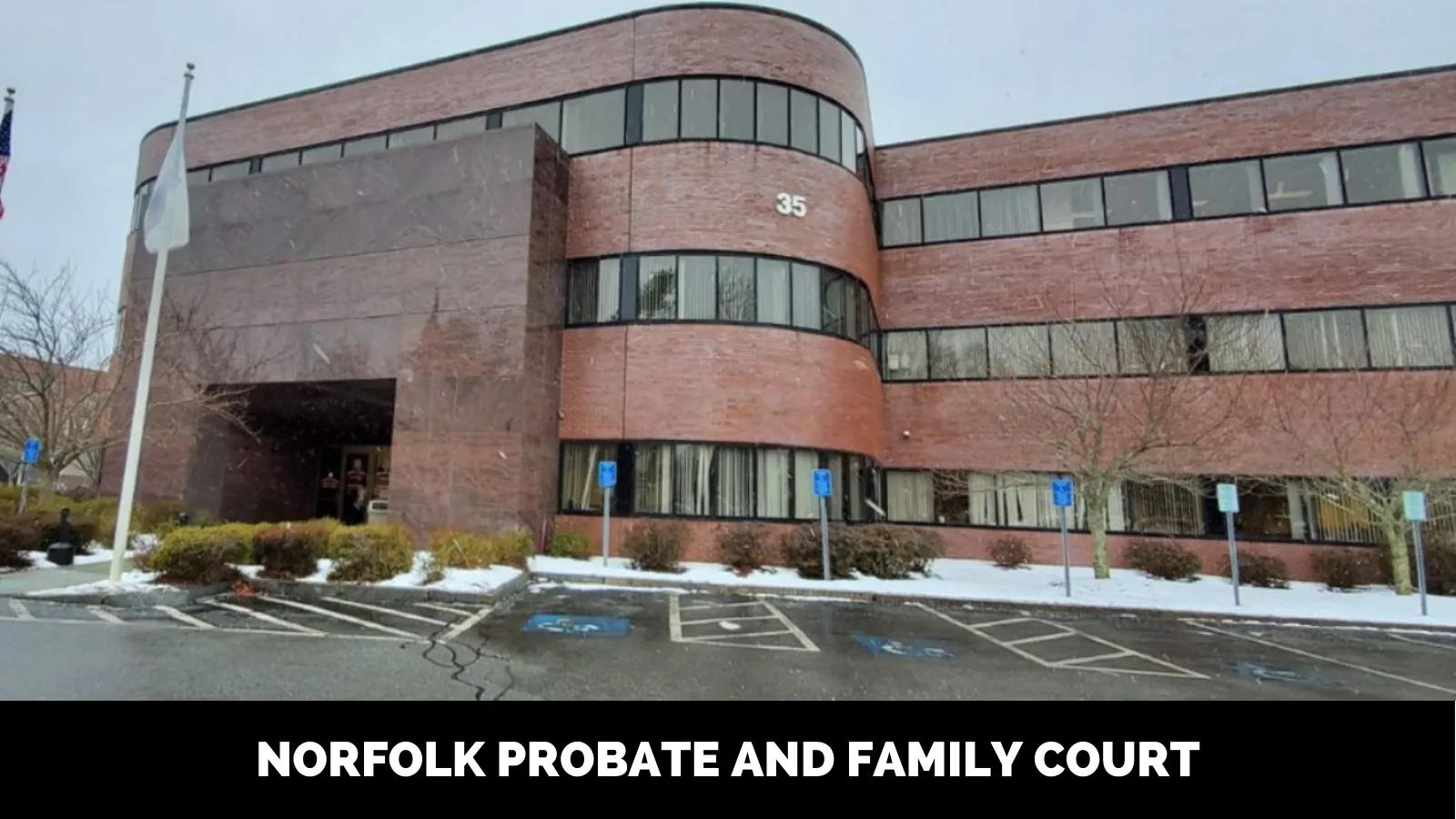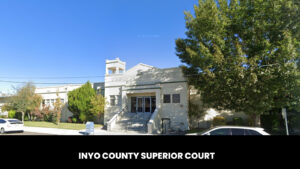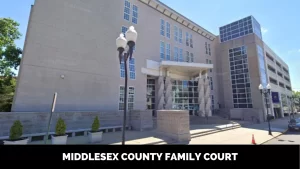Norfolk Probate and Family Court
Time
Working Hours:
Monday:
8:30 am–4:30 pm
Tuesday:
8:30 am–4:30 pm
Wednesday:
8:30 am–4:30 pm
Thursday:
8:30 am–4:30 pm
Friday:
8:30 am–4:30 pm
Saturday: closed
Sunday: closed
Connect with a Attorney
Introduction to the Norfolk Probate and Family Court
The Norfolk Probate and Family Court is located in Dedham, Massachusetts and has jurisdiction over several cities and towns in the area. This court is responsible for handling a wide range of legal matters related to families, estates, and individuals, including probate and estate administration, guardianships and conservatorships, adoptions, and domestic relations.
The primary purpose of the Norfolk Probate and Family Court is to provide a fair and impartial forum for individuals to resolve their legal issues. The court also plays a critical role in protecting the rights of all parties involved and ensuring that justice is served.
Understanding the Probate Process
Probate is the legal process by which the assets of a deceased person are distributed to their heirs and beneficiaries. This process involves a court review to determine the validity of the will, if one exists, and to ensure that the assets are distributed in accordance with the law.
The steps involved in the probate process include:
- Filing a petition with the court
- Appointing an executor or administrator
- Inventory of the deceased person’s assets
- Payment of debts and taxes
- Distribution of assets to heirs and beneficiaries
The timeframe for completing probate can vary depending on the complexity of the estate and the number of parties involved. On average, probate can take several months to a year to complete.
Types of Cases Heard at the Norfolk Probate and Family Court
The Norfolk Probate and Family Court hears a variety of cases, including:
- Estate Administration: This involves the distribution of a deceased person’s assets to their heirs and beneficiaries.
- Guardianships and Conservatorships: This involves the appointment of a guardian or conservator to manage the affairs of an incapacitated individual.
- Adoptions: This involves the legal process of adopting a child.
- Domestic Relations: This includes divorce, separation, and annulment proceedings, as well as child custody, support, and visitation matters.
Requirements for Filing a Case
To file a case in the Norfolk Probate and Family Court, an individual must meet certain eligibility requirements. The types of forms and documents required will vary depending on the nature of the case. Additionally, there are fees associated with filing a case in the court, which can also vary depending on the type of case.
Representation in Court
When appearing in court, an individual has several options for representation. They can represent themselves, hire an attorney, or be appointed counsel if they cannot afford to hire an attorney.
Representing oneself in court can be challenging, especially if the individual is not familiar with the legal system and court procedures. An attorney can provide guidance and representation throughout the legal process, increasing the chances of a favorable outcome.
If an individual cannot afford to hire an attorney, the court may appoint counsel to represent them. This service is provided free of charge to eligible individuals.
Mediation and Alternative Dispute Resolution
Mediation is a form of alternative dispute resolution that involves a neutral third party, known as a mediator, who helps the parties reach a mutually agreeable resolution to their dispute. Mediation is often faster, less expensive, and less adversarial than going to court.
The advantages of mediation include:
- Confidentiality: Mediation is a private process and the discussions that take place during mediation are not admissible in court.
- Flexibility: Mediation provides the parties with more control over the outcome than a court decision.
- Speed: Mediation can often be completed more quickly than going to court.
The mediation process typically involves the parties, the mediator, and their attorneys (if they have one). The mediator helps the parties communicate and negotiate a settlement to their dispute.
Court Procedures and Hearings
The court procedures and hearings in the Norfolk Probate and Family Court can vary depending on the type of case and the issues involved. However, some common court procedures include:
- Pretrial Conferences: This is a meeting between the parties, their attorneys (if they have one), and the judge to discuss the case and try to reach a settlement.
- Motions and Pleadings: This involves the filing of legal documents with the court that outline the parties’ positions and arguments.
- Trial Procedures: This involves presenting evidence and testimony in front of a judge or jury to determine the outcome of the case.
Decision Making and Appeal Process
The Norfolk Probate and Family Court makes decisions based on the evidence presented during the trial and the applicable laws and regulations. The decision of the court can be appealed if one of the parties is dissatisfied with the outcome.
The appeal process involves filing a notice of appeal with the court and presenting arguments and evidence to a higher court. The higher court will review the case and make a decision.
Norfolk Probate and Family Court Forms
Introduction to the Norfolk Probate and Family Court Forms
The Norfolk Probate and Family Court uses a variety of forms to facilitate the legal process for the cases it handles. These forms are used to initiate a case, provide information to the court, and request specific actions.
Understanding the Types of Forms Used at the Norfolk Probate and Family Court
The Norfolk Probate and Family Court uses different forms for different types of cases, including:
- Estate Administration Forms: These forms are used to initiate an estate administration case and provide information about the deceased person’s assets and debts.
- Guardianship and Conservatorship Forms: These forms are used to initiate a guardianship or conservatorship case and provide information about the incapacitated individual.
- Adoption Forms: These forms are used to initiate an adoption case and provide information about the adoptive parents and the child being adopted.
- Domestic Relations Forms: These forms are used to initiate a domestic relations case and provide information about the parties involved and the issues being disputed.
How to Obtain Norfolk Probate and Family Court Forms
Norfolk Probate and Family Court forms can be obtained from several sources, including:
- Online Resources: Many forms are available for download from the court’s website or other online resources.
- Court Clerk’s Office: Forms can also be obtained in person at the court clerk’s office.
Norfolk Probate and Family Court Judges
Introduction to Norfolk Probate and Family Court Judges
The Norfolk Probate and Family Court has several judges who preside over the cases that come before the court. These judges are responsible for making decisions and issuing orders in accordance with the law.
Overview of Judge Gorman of the Norfolk Probate and Family Court
Judge Gorman is a judge at the Norfolk Probate and Family Court. Information about Judge Gorman’s background and experience is not readily available.
Norfolk Probate Records Online
Introduction to Norfolk Probate Records Online
Norfolk Probate Records are public records that provide information about the distribution of a deceased person’s assets. These records are available online and can be accessed by anyone.
Understanding the Availability and Accessibility of Norfolk Probate Records
Norfolk Probate Records can be accessed from several sources, including:
- Online Resources: Many probate records are available for search and viewing online.
- Court Clerk’sOffice: Probate records can also be obtained in person at the court clerk’s office.
Norfolk Probate Court Clerk’s Office
Introduction to the Norfolk Probate Court Clerk’s Office
The Norfolk Probate Court Clerk’s Office is responsible for maintaining and updating the records of the Norfolk Probate and Family Court. The office is responsible for processing and filing the forms and documents necessary for the court to carry out its responsibilities.
Understanding the Role and Responsibilities of the Norfolk Probate Court Clerk
The Norfolk Probate Court Clerk is responsible for several important tasks, including:
- Maintaining and updating court records
- Processing and filing forms and documents
- Collecting fees and fines
- Providing information and assistance to the public
Norfolk Probate Court Phone Number and Contact Information
The Norfolk Probate and Family Court can be contacted by phone at the following number: +1 781-830-1200. The court’s website may also provide additional contact information, including an email address and physical address.
Norfolk Probate and Family Court Virtual Registry
Introduction to the Norfolk Probate and Family Court Virtual Registry
The Norfolk Probate and Family Court Virtual Registry is an online system that provides access to court records and documents. The virtual registry allows users to search for and view court records from the comfort of their own home.
Understanding the Purpose and Function of the Virtual Registry
The purpose of the virtual registry is to provide easy and convenient access to court records and documents. The virtual registry allows users to search for and view court records without having to visit the court in person.
Conclusion
The Norfolk Probate and Family Court plays a critical role in resolving legal matters related to families, estates, and individuals. Understanding the court’s jurisdiction, purpose, and procedures can help individuals navigate the legal process and achieve a favorable outcome.
FAQs
What is the Norfolk Probate and Family Court?
The Norfolk Probate and Family Court is a court located in Dedham, Massachusetts that handles a variety of legal matters related to families, estates, and individuals.
What is probate?
Probate is the legal process by which the assets of a deceased person are distributed to their heirs and beneficiaries.
Can I represent myself in court?
Yes, an individual can represent themselves in court, but it is often helpful to have an attorney provide guidance and representation.
What is mediation?
Mediation is a form of alternative dispute resolution that involves a neutral third party helping the parties reach a mutually agreeable resolution to their dispute.
Can the decision of the Norfolk Probate and Family Court be appealed?
Yes, the decision of the Norfolk Probate and Family Court can be appealed if one of the parties is dissatisfied with the outcome.






